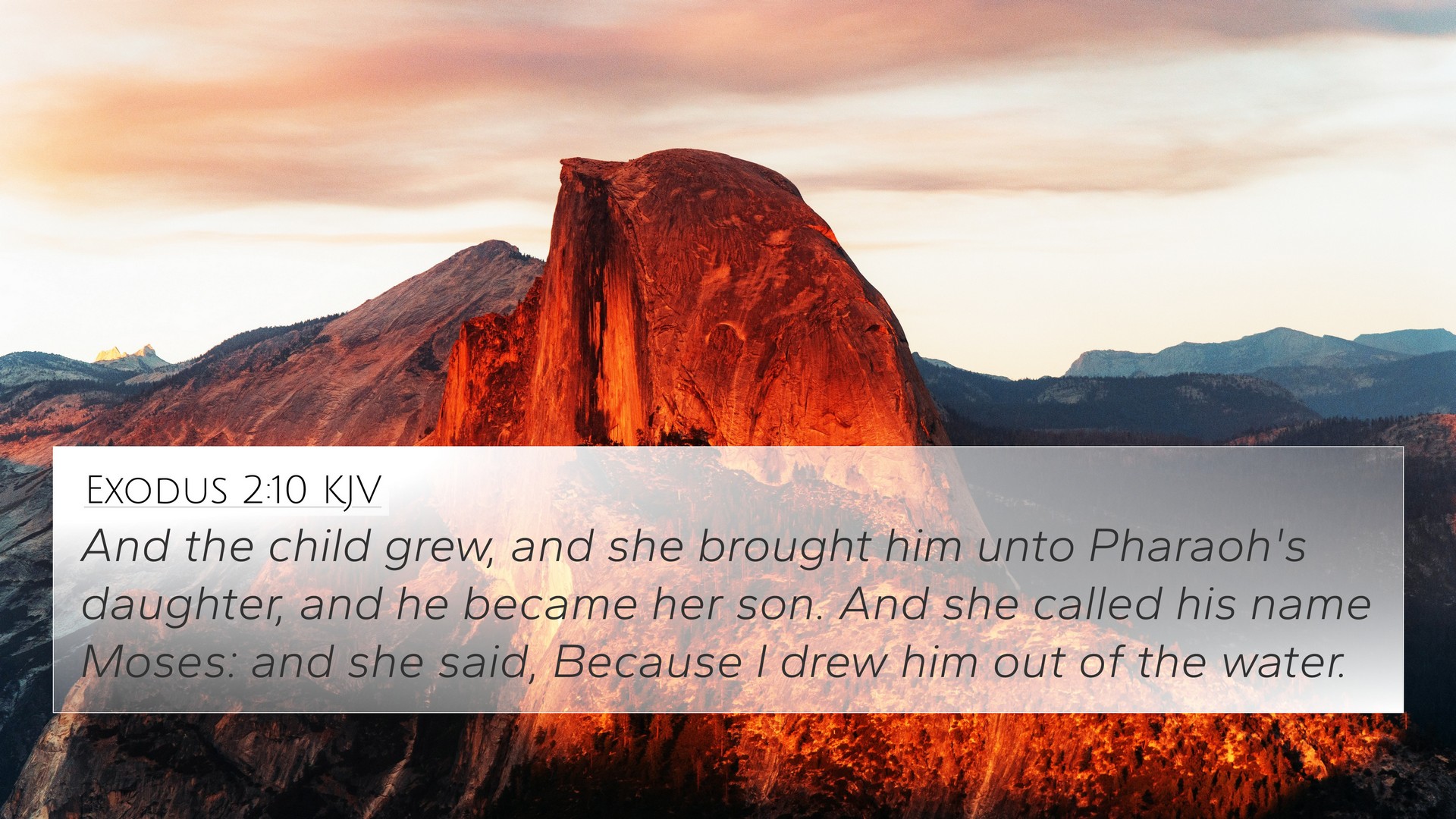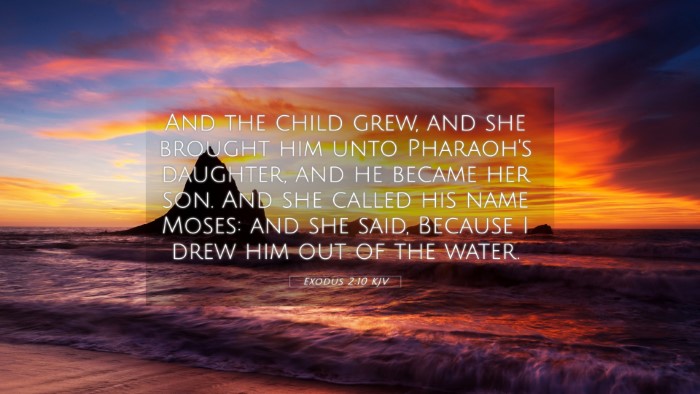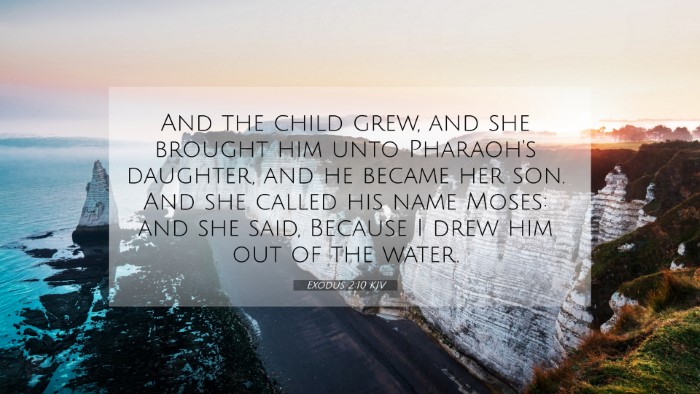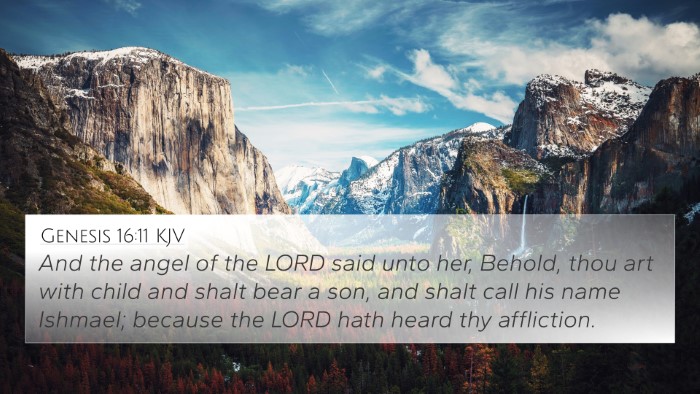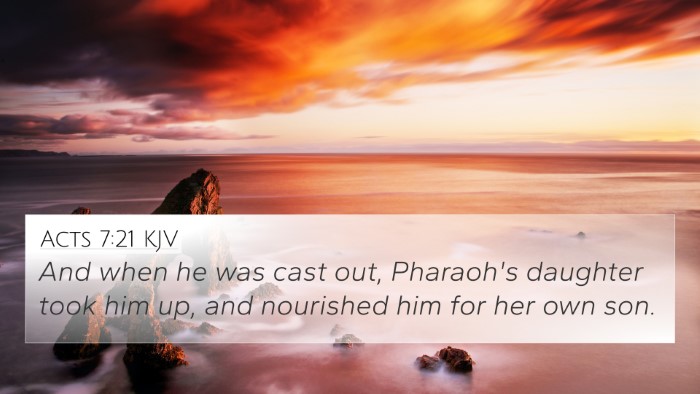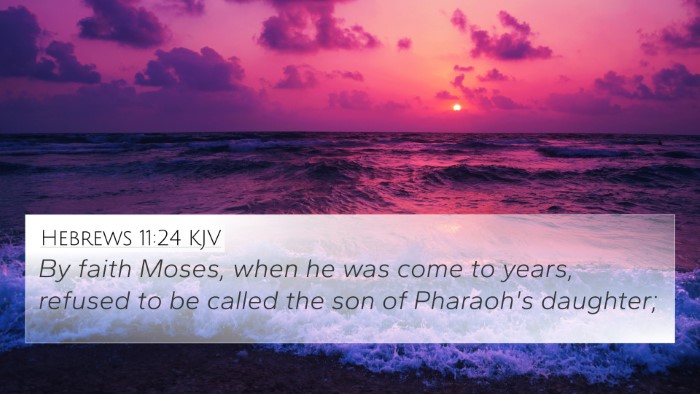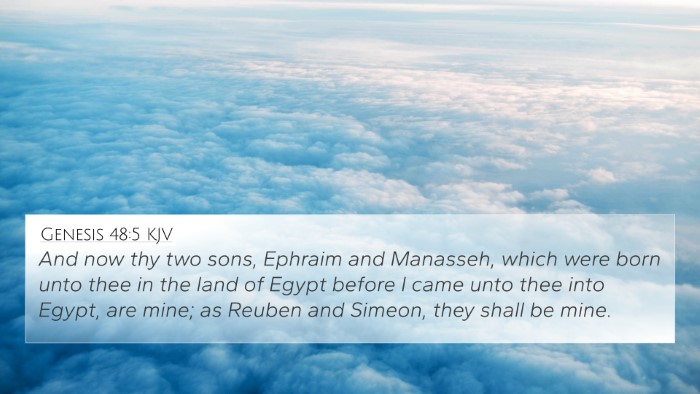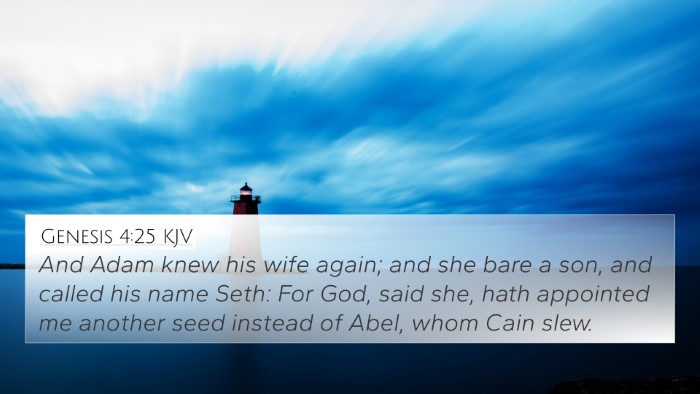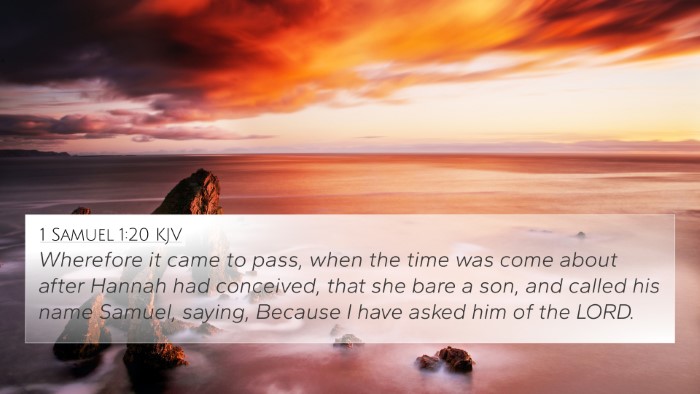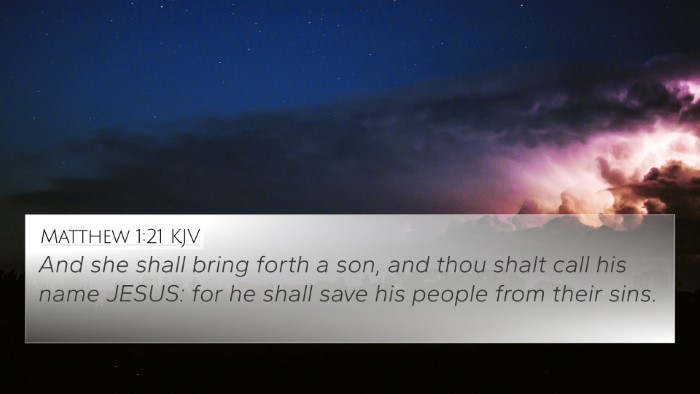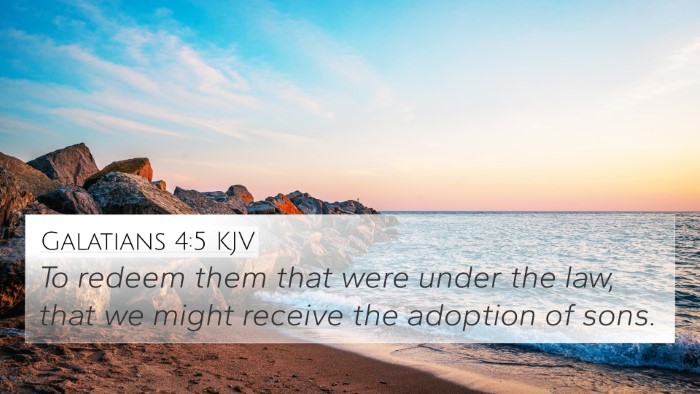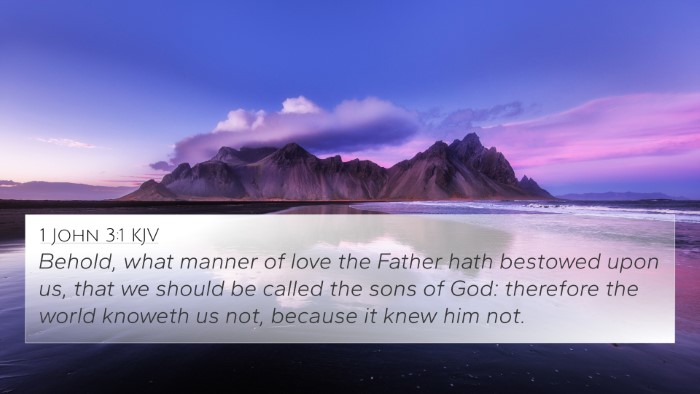Understanding Exodus 2:10
Exodus 2:10: "And the child grew, and she brought him unto Pharaoh’s daughter, and he became her son. And she named him Moses: and she said, Because I drew him out of the water."
Summary of the Verse
In this verse, we find the culmination of Moses' early life, where his mother, after hiding him as an infant, presented him to Pharaoh's daughter. This act not only saved Moses from death but also positioned him in a place of influence within the Egyptian royal family. The name 'Moses' is significant, derived from the Hebrew verb 'mashah', meaning 'to draw out', reflecting his rescue from the Nile.
Interpretative Insights from Commentaries
-
Matthew Henry:
Henry emphasizes the providential nature of Moses' adoption into Pharaoh’s family, showing God’s plan at work even amid danger. He points out that God's purposes often unfold in unexpected ways.
-
Albert Barnes:
Barnes discusses the significance of the name 'Moses' and its implications for his future role as a leader of Israel. He also highlights the faith of Miriam and Jochebed, Moses’ mother, in entrusting him to the princess.
-
Adam Clarke:
Clarke provides a linguistic analysis of the term 'Moses' and connects it to broader themes in Scripture, such as deliverance and God's faithfulness to His people. He also notes the maternal instinct of Jochebed and the miraculous preservation of her son.
Cross-References and Thematic Connections
This verse connects profoundly with other biblical texts, establishing a rich tapestry of narrative and thematic links:
- Genesis 37:28: The story of Joseph being sold by his brothers parallels Moses’ journey into Egypt.
- Exodus 3:10: God commissions Moses to confront Pharaoh, highlighting the significance of his upbringing.
- Acts 7:20-22: Stephen recounts Moses' early life, providing additional context to his development and calling.
- Hebrews 11:23-24: Faith of Moses' parents leads to his preservation, linking the themes of faith and destiny.
- Matthew 2:13-15: The escape of Jesus into Egypt shows a connection between the two deliverers and God’s ongoing protection.
- Romans 9:17: Paul references Pharaoh and God's purpose in hardening his heart, inviting correlations with Moses’ life story.
- 1 Peter 2:9: The calling of Israel as a chosen people resonates with Moses’ role as leader and deliverer.
Thematic Bible Verse Connections
Understanding Exodus 2:10 requires an appreciation of its overarching themes, particularly the divine orchestration of events in history and the concept of chosen leaders:
- Divine Protection: Like Moses, many biblical figures experience God's protection in formidable circumstances (e.g., Noah, Jesus).
- Leadership: The selection and preparation of leaders is a recurring theme; Moses stands as a precursor to many biblical leaders.
- Identity Formation: The name 'Moses' symbolizes a transition from past (Hebrew) to future (Egyptian royal) identity.
How to Utilize Cross-References
Utilizing tools for Bible cross-referencing allows readers to delve deeper into the connections between verses. Here are some recommended methods:
- Bible Concordances: Use a concordance to find words or themes that connect Exodus 2:10 to other scriptures.
- Cross-Reference Guides: Many Bibles come with built-in resources that list comparative verses for deeper study.
- Bible Study Apps: Choose apps that feature cross-referencing Bible study methods, allowing for quick access to related scriptures.
Conclusion
Exodus 2:10 is a short yet profound verse that serves as a cornerstone for understanding Moses' significant role in the narrative of the Israelites. The connections between this verse and the broader biblical context highlight God's providential care and intentionality in the unfolding story of redemption.
